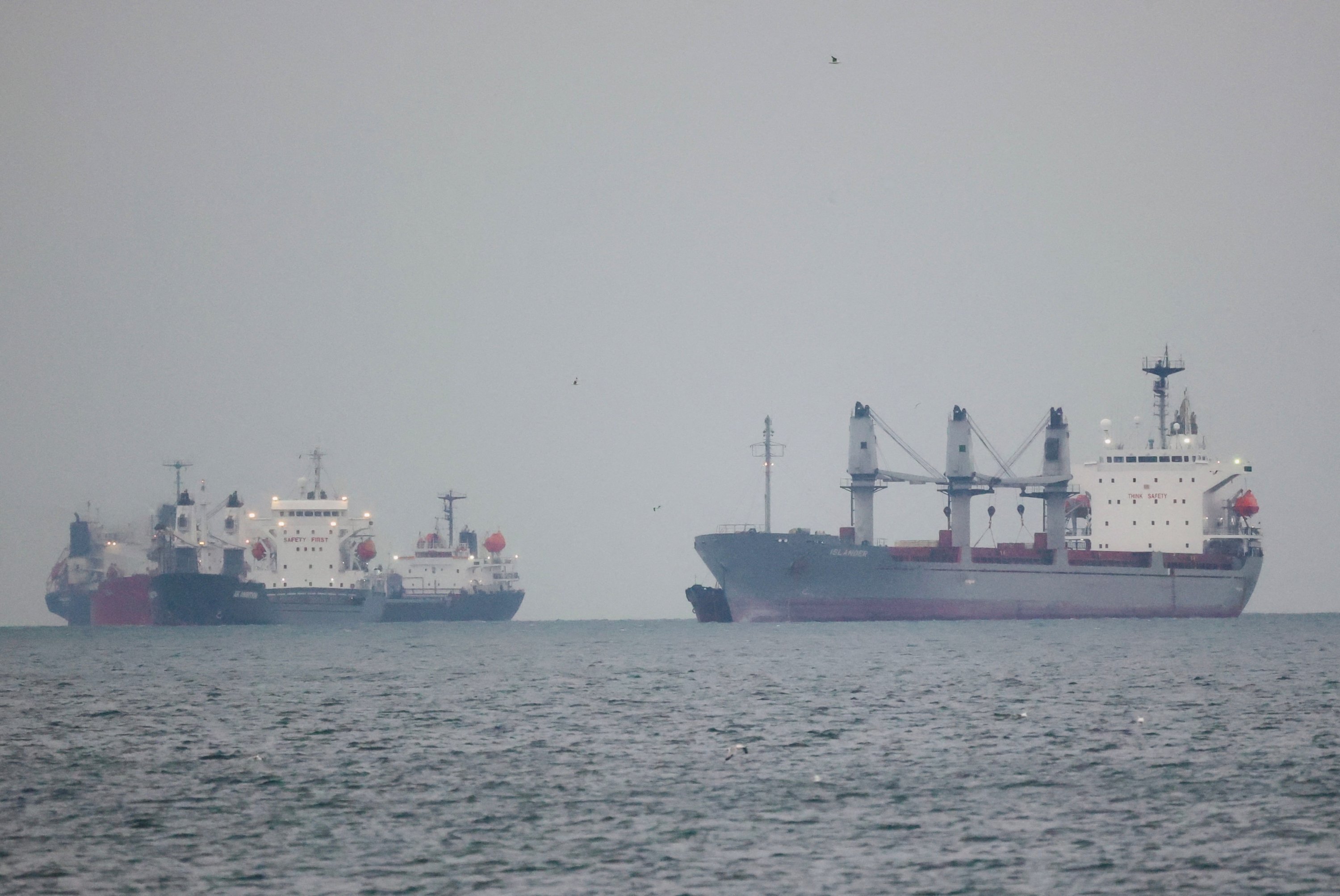Russia has limited the registration of vessels bound for the Ukrainian port of Yuzhny, until the transit of Russian ammonia is unblocked.
Spokesperson for the United Nations Secretary-General Stephane Dujarric on Thursday said that Russia officially notified the Joint Coordination Center (JCC) about its decision.
“The Russian Federation has informed the JCC of its decision to limit registrations to the port of Yuzhny, as long as ammonia is not exported,” TASS reported, citing Dujarric.
Dujarric expressed serious concern that only 33 ships departed from Ukrainian ports in May, half the number compared to April, and exports of grain and other foodstuffs totaled just 1.3 million metric tons last month, less than half the amount of the previous month.
Ammonia is a key ingredient for fertilizers production and Moscow demands that Ukraine allow its exports through the port of Odesa.
The Odesa Port Plant is a unique enterprise since it serves a dual purpose: it can produce mineral fertilizers from imported ammonia or natural gas, while simultaneously pumping liquid ammonia from the Togliatti-Odesa ammonia pipeline into gas tankers. The transshipment capacity is 2.6 million tonnes of ammonia per year.
The Black Sea Grain Initiative, brokered by Türkiye and the United Nations, allowed the resumption of Ukrainian grain exports through three key Black Sea ports – Odesa, Chernomorsk and Yuzhny – which were blocked since Russia launched the “special military operation” on February 24, 2022.
Millions of tonnes of grain were trapped in the country’s silos, causing a surge in food prices, as well as fears of a global food crisis.
As part of the deal, Ukraine resumed grain exports through its ports in the Odesa region, while Moscow secured guarantees for its own grain and fertilizer exports.
Last August, Russia expressed its willingness to adjust the terms of the deal to ensure more food supplies reach the poorest countries in Africa and Asia.
Moscow has repeatedly warned that it may not extend the grain deal beyond its next expiration on May 18. The deal is supposed to be renewed every 120 days. When the agreement was last renewed in March, Russia consented to only a 60-day extension.
The Kremlin has set forward a number of requests, including the reinstatement of the Russian Agricultural Bank into the SWIFT global payment system, the restart of farm equipment exports to Russia, and the removal of limitations on insurance and port access for Russian ships and cargo.
In turn, Ukraine called Russia’s actions a “gross violation” of the agreement. The Ukrainian Ministry of Reconstruction and Infrastructure claims that starting from mid-April, 50 vessels have lined up in Turkish territorial waters waiting for the inspection to be allowed to load 2.4 million tons of food in Ukrainian ports.
“This is more than $1 billion in losses that affect the final cost of food for the world,” the ministry said. “Thus, Russia has once again found a way to limit the world’s food supply.”
The Black Sea region, which includes Ukraine, is a key hub for grain exports, with Russia also a major producer and exporter of grain.
The Black Sea grain deal between Russia and Ukraine is an important aspect of the global grain market, particularly for countries in the Middle East and North Africa region, which are major importers of Ukrainian wheat and corn. Any disruption to its grain exports would have significant economic and geopolitical consequences and cause a global food crisis.
Ukraine and Russia are both significant food suppliers, accounting for 29 percent of wheat exports and 80 percent of sunflower exports globally. The exports are mainly through the Black Sea.
Ukraine, known as one of the world's breadbaskets, is a top grain supplier to dozens of developing countries. In 2021, the country's grain exports totaled $12.2 billion, accounting for nearly a fifth of the country’s total exports.
Prior to the war, Ukraine exported 98 percent of its cereals and oilseed via the Black Sea, at a rate of up to 6 million tonnes per month. But with the ports blocked and the railway system unable to cope with the extra volume, the country was only exporting between 1-1.5 million tonnes a month.







 Iran's senior military leaders described the drone and missile attack on Israel on April 14 night as “successful".
Iran's senior military leaders described the drone and missile attack on Israel on April 14 night as “successful".
 Iranian Foreign Ministry Spokesperson Nasser Kanani warned of “geopolitical rivalries”, commenting on a recent high-level meeting between Armenia, ...
Iranian Foreign Ministry Spokesperson Nasser Kanani warned of “geopolitical rivalries”, commenting on a recent high-level meeting between Armenia, ...
 Iran's President Ebrahim Raisi extended condolences to the Chairman of the Political Bureau of the Palestinian Hamas group, Ismail Haniyeh, followi...
Iran's President Ebrahim Raisi extended condolences to the Chairman of the Political Bureau of the Palestinian Hamas group, Ismail Haniyeh, followi...



